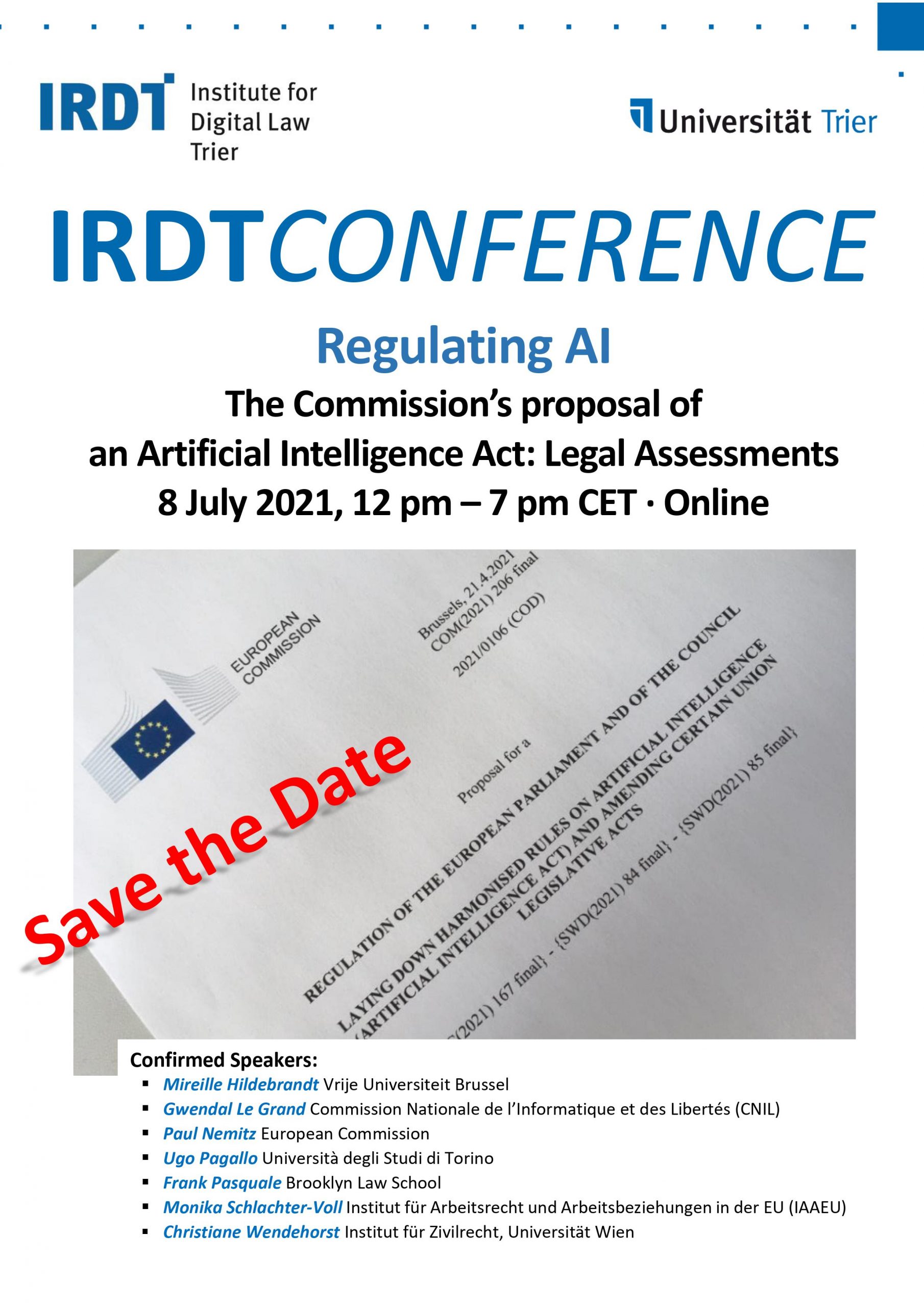
On 8 July, the Institute for Digital Law Trier (IRDT) of the Trier University organised the international and interdisciplinary online conference concerning the EU Commission’s proposal of an Artificial Intelligence Act of 21 April 2021.
Please take note of the Programme
The EU starts regulating AI
On 21 April 2021, the EU Commission published a proposal of an EU regulation on Artificial Intelligence, thereby starting the legislative process of the first ‘Artificial Intelligence Act’ worldwide. The regulation, based on the EU’s competence for the internal market and data protection, envisages harmonised rules for AI systems placed on the market or put into service in the EU, AI systems used by users located in the EU, or AI systems whose output is used in the EU. It distinguishes three classes of AI practice. Some practices are prohibited (1), i.e. the use of real-time remote biometric identification systems and of social scores by public authorities, and – more generally – certain forms of deploying subliminal technical or exploiting vulnerabilities of persons due to their age or a disability. Some AI systems qualified as ‘high-risk’, e.g. those used in employment and education, in the management of critical infrastructure or in law enforcement (2), have to comply with rules concerning risk management, data governance, transparency, human oversight, robustness, and registration, among others. Finally, all AI systems intended to interact with natural persons (3) have to respect transparency requirements.
The Artificial Intelligence Act merits assessments from different perspectives. Does the Act reflect a proper understanding of the technical and normative challenges posed by AI? Does it strike the right balance between limiting risks from AI and enabling its reasonable use? How suitable are the proposed legal instruments to regulate AI? What is the relationship between the AI Act and other EU laws such as the GDPR? Is it useful to grant the Commission the power to expand the scope of the Act by amending the Annex? What would this AI regulation mean for the ‘competition of systems’ between the EU, the US and China? We discussed these questions with our panellist and a broader audience at our conference.
Organizers
- Benjamin Raue, Director IRDT
- Antje von Ungern-Sternberg, Director IRDT
Speakers
- Mireille Hildebrandt, Prof. on Interfacing Law and Technology, Free University Brussels
- Paul Nemitz, Principal Advisor for DG Justice and Consumers, EU-Commission
- Ugo Pagallo, Prof. of Jurisprudence, University of Torino
- Frank Pasquale, Prof. of Law, Brooklyn Law School
- Monika Schlachter, Prof. at the Institute for Labour Law and Industrial Relations in the European Union, Trier University
- Ingo Timm, Prof. of Business Informatics, Trier University, Co-Spokesman of the AI Section of the German Informatics Society
- Félicien Vallet, AI lead, Commission Nationale de l’Informatique et des Libertés (CNIL), France
- Christiane Wendehorst, LL.M. (Cantab.), Prof. of Civil Law, University of Vienna, Co-Spokesperson of the German Data Ethics Commission



